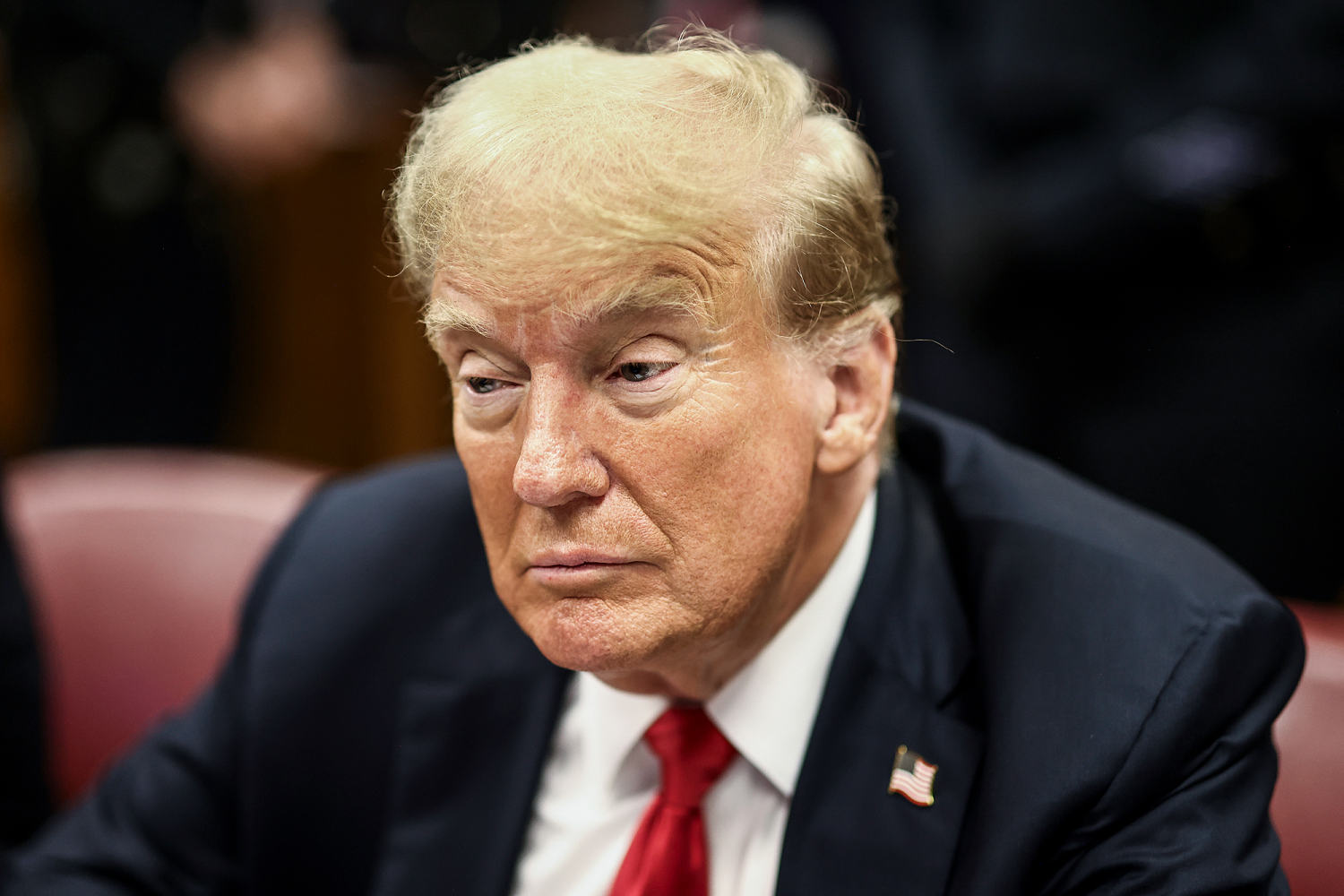Trump trial jury must now decide if prosecutors left any room for doubt in ‘mountain’ of evidence


It’s easy to watch former President Donald Trump’s trial and conclude that he probably did exactly what prosecutors allege: protect his 2016 campaign by paying off a porn star and then cover it up with phony payment records.
Michael Cohen, the former president’s onetime fixer, testified that he was the tool Trump used.
But “probably” isn’t the bar for jurors. They are charged with evaluating whether there’s any reasonable doubt. Just one of them can hang the jury if he or she believes the state failed to meet that burden.
The question then, as they begin to consider the evidence Wednesday, is whether the witnesses and documents presented by the prosecution leave little room to doubt Trump’s criminal culpability.
Like any veteran prosecutor, Joshua Steinglass told the jurors Tuesday that they had seen a “mountain” of evidence of the 34 alleged crimes.
Trump himself tweeted in 2018 that he had reimbursed Cohen for the hush money payment. It’s a contention that Cohen bolstered by testifying that a year’s worth of $35,000-per-month payments to him from Trump’s personal trust were that reimbursement — not the “legal retainer” described in Trump’s business records — along with a plus-up to cover taxes and money for a separate deal with a tech company.
Trump’s lawyers argue that the records are true and that Cohen — who did little legal work — was, in fact, paid more than $400,000 in a year to be on call as a lawyer.
They say Trump had nothing to do with Cohen’s invoices or corporate vouchers involved in approving the monthly payments. Trump’s signature on checks, they contend, isn’t evidence that he knew what he was paying for.
The room for interpretation about the nature of the payments may be limited by Trump’s tweet, which said Cohen was reimbursed through a retainer. Trump also described the reimbursement in a filing with the Office of Government Ethics during his presidency.
Trump’s lawyers, led by Todd Blanche, have argued that Cohen went rogue in negotiating a deal to buy porn actor Stormy Daniels’ silence — essentially that Trump didn’t know about it. No one has suggested that Trump and Daniels didn’t meet in a hotel room in 2006. Trump has denied Daniels’ allegation that they had sex. But that matters less than whether — or why — he wanted to stop her from making her claim publicly.
Cohen and David Pecker, a former magazine publisher, testified that they hatched a scheme with Trump during the 2016 election to promote stories that helped Trump and those that hurt his opponents — and, importantly, to kill stories that would harm him. Cohen would be the intermediary that kept Trump at arm’s length.
That’s the role Cohen says he played when Pecker’s publication, the National Enquirer, decided not to “catch and kill” Daniels’ story by paying her to aid Trump. Cohen stepped in and struck an agreement with Daniels’ lawyer, Keith Davidson. Cohen says he kept Trump updated throughout the process. One phone call between Trump and Cohen, according to records admitted into evidence, happened within an hour of Cohen’s setting up a bank account to transfer $130,000 to Davidson.
The defense pointed to a phone call Cohen testified he had with Trump and said that it wasn’t about Daniels but that rather it was a call to Trump aide Keith Schiller to deal with a teenager who Cohen believed was harassing him. Prosecutors noted the time of the phone call was long enough for Cohen to speak to Schiller about that matter and to Trump about the hush money situation. Trump was with Schiller at the time, according to a photograph.
What may be the toughest sell for the prosecution is the idea that Trump executed the alleged scheme to win the 2016 election. His lawyers make a commonsense argument that he wanted Daniels silenced to protect his family rather than to save his campaign.
Motive is difficult to prove, especially when the defendant doesn’t testify or put sensitive matters in writing.
Prosecutors noted that Daniels’ story was bought in the shadow of the Oct. 7, 2016, release of the “Access Hollywood” tape, in which Trump boasted that he had sexually assaulted women. The election was a month away. Longtime Trump aide Hope Hicks testified that Trump later told her that it would have been bad for the story to “come out before the election.”
“Stormy Daniels was a walking, talking reminder that the defendant was not only words. She would have totally undermined his strategy for spinning away the ‘Access Hollywood’ tape,” Steinglass said. “Stormy Daniels is the motive.”
Blanche said that the “Access Hollywood” tape created a difficult personal moment for Trump and that nobody would want his or her family subjected to that. The implication left for the jury was that he would also not want the Daniels story to pop up in his wife’s and children’s news feeds.
On that point, the jurors will have to decide whether they think there’s any reasonable doubt that Trump was motivated by winning the presidency.







